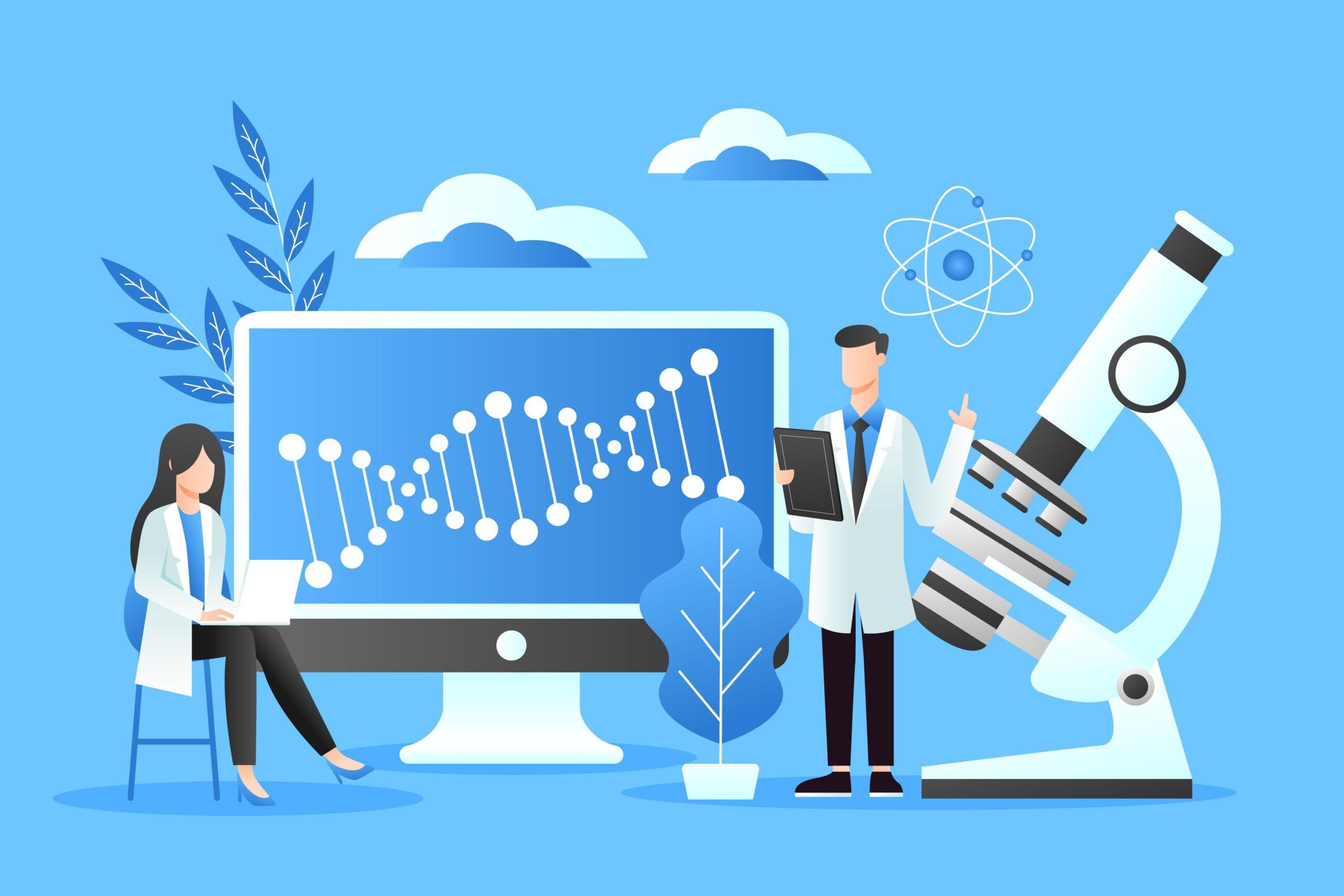
In recent years, genetic testing has emerged as a powerful tool in the field of medicine, revolutionizing the way we diagnose and treat various health conditions. By analyzing an individual’s DNA, healthcare providers can identify genetic mutations linked to specific diseases, leading to earlier diagnoses and more personalized treatment options. This blog explores the significance of genetic testing in early diagnosis and treatment, its applications, limitations, and the future it holds for healthcare.
What is Genetic Testing?
Genetic testing involves examining an individual’s DNA, RNA, or chromosomes to identify changes or mutations that may indicate a genetic disorder or predisposition to certain diseases. This process can be performed on blood, saliva, or tissue samples and is typically conducted by specialized laboratories.
There are various types of genetic tests, including:
- Diagnostic Testing: Used to confirm or rule out a specific genetic condition in symptomatic individuals.
- Predictive Testing: Determines the likelihood of developing a genetic disorder before symptoms appear, often used in family planning.
- Carrier Testing: Identifies individuals who carry one copy of a gene mutation that, when present in two copies, can cause a genetic disorder.
- Prenatal Testing: Conducted during pregnancy to assess the risk of a genetic disorder in the fetus.
- Newborn Screening: A routine test performed shortly after birth to detect certain genetic disorders that can benefit from early intervention.
The Importance of Early Diagnosis
Early diagnosis through genetic testing is critical for several reasons:
Timely Intervention: Identifying genetic disorders at an early stage allows for prompt intervention, which can significantly improve health outcomes. For example, early treatment of congenital hypothyroidism, detected through newborn screening, can prevent developmental delays and lifelong complications.
Informed Decision-Making: Genetic testing provides individuals and families with vital information about their health risks, enabling them to make informed decisions regarding treatment options, lifestyle changes, and family planning.
Targeted Treatments: Understanding the genetic basis of a disease can lead to more personalized and effective treatment strategies. For instance, certain cancers caused by specific genetic mutations may respond better to targeted therapies designed to attack cancer cells with those mutations.
Applications of Genetic Testing in Various Fields
Oncology: Genetic testing has transformed cancer treatment by identifying mutations that drive tumor growth. Tests such as BRCA1 and BRCA2 screening for breast and ovarian cancer risk can guide treatment decisions. For example, individuals with BRCA mutations may consider preventive surgeries or targeted therapies like PARP inhibitors.
Cardiology: Genetic testing can identify inherited heart conditions, such as hypertrophic cardiomyopathy and long QT syndrome, which can lead to life-threatening arrhythmias. Early diagnosis allows for monitoring and preventive measures to reduce risks.
Neurology: Conditions like Alzheimer’s disease, Huntington’s disease, and certain forms of epilepsy can be linked to specific genetic mutations. Genetic testing can help diagnose these conditions early, allowing for timely management and support.
Rare Diseases: Many rare genetic disorders are challenging to diagnose due to their complexity and variety of symptoms. Genetic testing can provide a definitive diagnosis for these conditions, allowing families access to resources and support.
Pharmacogenomics: Genetic testing can guide medication choices based on an individual’s genetic makeup, improving drug efficacy and reducing adverse reactions. For example, certain genetic variants can affect how individuals metabolize medications, leading to tailored treatment plans.
Limitations of Genetic Testing
While genetic testing offers numerous benefits, there are also limitations and challenges that must be considered:
Interpretation of Results: Not all genetic mutations have a clear association with disease. Variants of uncertain significance (VUS) can complicate decision-making for patients and healthcare providers.
Ethical and Privacy Concerns: Genetic testing raises ethical questions regarding privacy, discrimination, and consent. Individuals may worry about how their genetic information will be used or shared, especially regarding insurance and employment.
Cost and Accessibility: While the costs of genetic testing have decreased, affordability and access remain significant barriers for many individuals. Not all insurance plans cover genetic testing, and some tests may be prohibitively expensive.
Emotional Impact: Receiving genetic test results can have psychological implications, particularly if the results indicate a high risk of developing a serious condition. Genetic counseling is essential to support individuals and families throughout the testing process.
The Future of Genetic Testing in Healthcare
As technology continues to advance, the future of genetic testing looks promising. Here are some key trends and developments to watch for:
Expanded Testing Options: The availability of comprehensive genomic testing panels that analyze multiple genes simultaneously will increase, allowing for broader screening of various conditions.
Integration into Clinical Practice: As genetic testing becomes more routine in clinical settings, healthcare providers will increasingly incorporate genetic information into patient care, leading to more personalized treatment approaches.
Direct-to-Consumer Testing: The rise of direct-to-consumer genetic testing services offers individuals easy access to genetic information. However, it also emphasizes the need for education and awareness regarding the interpretation and implications of test results.
Research Advancements: Ongoing research into the genetic basis of diseases will enhance our understanding of complex health conditions and inform the development of novel therapies and interventions.
Conclusion
Genetic testing plays a crucial role in early diagnosis and treatment, providing valuable insights into our health and guiding medical decisions. As our understanding of genetics evolves, the integration of genetic testing into healthcare has the potential to transform patient care, leading to more accurate diagnoses and personalized treatments. While challenges exist, ongoing research and advancements in technology promise a future where genetic testing becomes an integral part of preventive medicine and therapeutic strategies, ultimately improving health outcomes for individuals and families.
By embracing the power of genetic testing, we can pave the way for a healthier future, where early intervention and personalized medicine redefine the landscape of healthcare.

